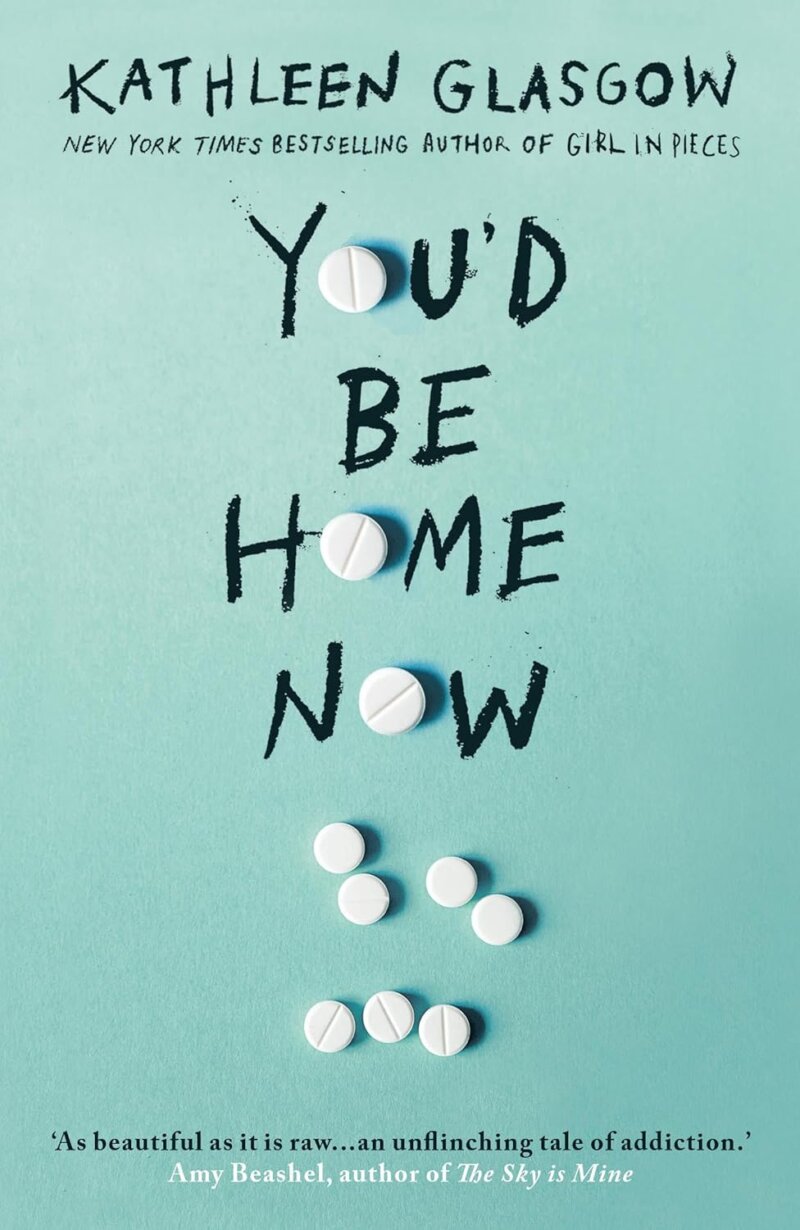You'd Be Home Now Book Summary
“You’d Be Home Now” is a heart-stirring novel written by Kathleen Glasgow that takes readers on an emotional journey through the lives of its characters. Set in a small town in the mountains, this book explores themes of loss, love, and the search for belonging in a world that often feels too big to navigate alone.
The story centers around seventeen-year-old Cassie, who is grappling with the sudden loss of her older brother, Wyatt, in a tragic accident. Struggling to come to terms with her grief, Cassie finds herself adrift in a sea of sorrow, unable to find solace in the familiar routines of her small-town life. As she navigates the tumultuous waters of her emotions, Cassie must confront the painful reality of Wyatt’s absence and the gaping hole he has left behind.
Glasgow deftly captures the raw intensity of grief, portraying Cassie’s emotions with raw honesty and authenticity. Through her evocative prose, the author invites readers to experience the depth of Cassie’s despair as she grapples with the weight of her loss. From the empty chair at the dinner table to the echoes of Wyatt’s laughter that still linger in the air, Glasgow paints a poignant portrait of a family shattered by tragedy.
Amidst the darkness, however, glimmers of hope emerge as Cassie forms unexpected connections with those around her. From her enigmatic neighbor, Mr. Norris, to the troubled boy with the haunted eyes who sits alone in the back of her English class, Cassie discovers that she is not as alone as she once believed. Together, they navigate the choppy waters of grief, offering each other comfort and understanding amid their shared pain.
At its core, “You’d Be Home Now” is a story about the transformative power of human connection. As Cassie learns to lean on others for support, she discovers that strength can be found in vulnerability and that healing often comes from the unlikeliest places. Through her journey, she understands that while loss may leave scars, it also has the power to shape us into who we are meant to be.
One of the most compelling aspects of Glasgow’s novel is its richly drawn cast of characters, each of whom leaps off the page with their unique quirks and complexities. From Cassie’s fiercely protective mother to her childhood friend, who has never quite outgrown his teenage rebellion, every character is imbued with depth and nuance, making them feel like old friends by the time the final page is turned.
In addition to its captivating characters, “You’d Be Home Now” is distinguished by its vivid sense of place. Glasgow’s lyrical descriptions transport readers to the picturesque landscape of Cassie’s hometown, where the mountains loom large on the horizon, and the air is heavy with the scent of pine. Through her evocative prose, Glasgow captures the magic of small-town life, inviting readers to lose themselves in the quiet beauty of Cassie’s world.
As the story unfolds, Cassie must confront her grief and the secrets that have long haunted her family. From the truth behind Wyatt’s accident to the painful memories buried beneath the surface, Cassie is forced to confront the demons of her past to find peace in the present. In doing so, she learns that sometimes, the hardest part of healing is learning to forgive oneself.
“You’d Be Home Now” is a poignant and powerful meditation on loss, love, and the redemptive power of human connection. Through its lyrical prose and unforgettable characters, Kathleen Glasgow reminds us that even in our darkest moments, there is always hope to be found. As Cassie navigates the rocky terrain of grief, she discovers that home is not just a place but a feeling—a sense of belonging that can be found in the hearts of those we hold dear. In the end, she learns that while the road to healing may be long and arduous, it is a journey worth taking, for it is in our brokenness that we find our true strength.
